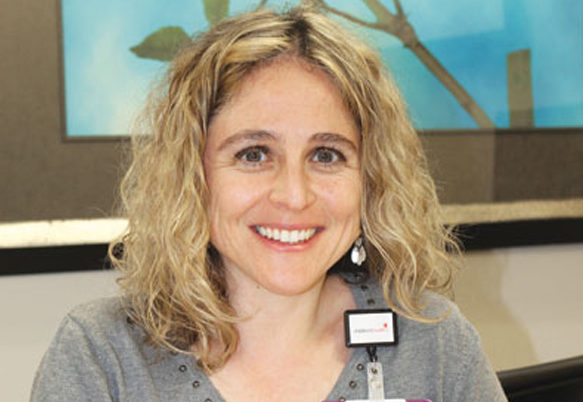Several states, including Texas, have introduced legislation that would make it nearly impossible for doctors to prescribe cross-sex hormones or puberty blockers to transgender children. These medications are completely safe, and the effects are reversible. Studies show puberty blockers and other hormonal treatments can help transgender youth feel more confident. They can improve self-esteem and reduce the risk of suicide.
Now that these treatments have been banned in Texas, Dr. Ximena Lopez of the University of Texas Southwestern Medical Center is suing the facility. She argues that denying transgender children care amounts to discrimination.
Interfering with Care
According to the lawsuit, Lopez believes the ban violates anti-discrimination laws, while also interfering with her practice.
“Someone, some entity, or some office is illegally attempting to interfere with or control Dr. Lopez’s independent medical judgment,” the petition states. “That edict is patently prohibited discrimination. It is illegal. It potentially exposes Dr. Lopez to legal liability. The only question is: who is dictating this illegal policy and why?”
Lopez founded the GENECIS clinic in 2015. She specializes in treating transgender children and those experiencing gender dysphoria. She said she still evaluates and treats new patients, providing psychological and counseling care, but the clinic has begun referring patients to outside practices if they seek cross-sex hormones or “puberty-blockers.”
TSMC defended its decision to deny treatment for transgender youth.
“Those new patients and their families seeking puberty blockers and hormone replacement therapy after diagnosis of gender dysphoria are now referred to an outside practice for this treatment,” the medical center explained.
“The decision to cease offering puberty blockers and hormone therapy to new pediatric patients was based on a variety of factors, including growing concern in the medical community about our limited understanding of the long-term effects – both psychological and physical – on children who receive this treatment,” the statement continued. “We considered that there have not been controlled trials that have clearly delineated the effectiveness and safety of these treatments. According to the scientific journal Transgender Health, as of 2021: No medications carry an FDA indication for use in youth with gender dysphoria.”
“Media attention and political and scientific controversy, as well as UT Southwestern’s status as a state agency, were considered in the months leading up to these joint decisions,” the statement added. “UT Southwestern physicians provide pediatric care at Children’s Health facilities through our affiliation agreement.”
The decision comes after Texas Attorney General Ken Paxton urged the state’s child protective services department to investigate cases of transgender youth receiving these treatments as “child abuse”, including incidents where Texas children are exposed to “a wide variety of elective procedures for gender transitioning, including reassignment surgeries that can cause sterilization, mastectomies, removals of otherwise healthy body parts, and administration of puberty-blocking drugs or supraphysiologic doses of testosterone or estrogen.”
However, a judge recently blocked Paxton’s order from taking effect.
The medical center also denied Lopez’s claims of discrimination.
“UT Southwestern is committed to providing equal opportunities to all members of the campus community and to maintaining an environment that is free from unlawful discrimination, harassment and retaliation,” the center said in a statement. “In accordance with the Board of Regents’ Rules and Regulations, UT System policy, and applicable federal and state law, no individual will be excluded from participation in, denied the benefits of, or be subjected to discrimination in UT Southwestern services, programs, and activities on the basis of race, color, national origin, religion, sex, age, disability, genetic information, protected veteran status, citizenship status, sexual orientation, gender identity, or gender expression.”
Many medical centers have embraced the idea of giving puberty blockers to transgender children that don’t identify with the sex they were assigned at birth. However, some doctors have warned that these treatments haven’t been approved for gender dysphoria by the FDA.
Most hormone treatments “are only FDA approved as puberty blockers in children for the purpose of treating central precocious puberty and not for gender dysphoria,” said Dr. Michael Laidlaw, an independent private practice endocrinologist in Rocklin, California.
“Central precocious puberty is a medical condition in which a child starts puberty at an abnormally young age, say age 4,” Laidlaw explained. “Medications like Supprelin LA are used to stop this abnormal puberty. Then once the child reaches a typical age for puberty (say age 11 or 12), the medication is stopped, and then normal puberty will resume.”
However, gender affirming care can also help transgender children feel more comfortable in their own skin. Providers like Lopez believe the ban needlessly targets and endangers children that want to transition someday.
Contrary to what Paxton said, transgender children do not receive sexual reassignment surgery and are not sterilized.
Lopez believes the medical center is caving to political pressure from the state instead of doing what’s best for patients.
She is asking the university to hand over documents, including communications that might show pressure from elected officials triggered the changes at Genecis, and wants top officials to sit for depositions. The petition notes the information sought will allow Lopez to decide if and against whom she files a lawsuit seeking to overturn the university’s decision to cut off care to new transgender patients.
She has been meeting with parents and children affected by the ban.
“I am not a politician, and I am naturally reluctant to wade into politics, but where it affects my patients, I am left with no choice. In fact, I have an obligation to do what is right and best for them. I’m speaking out now because the lives of these children are quite literally on the line,” she said.
She also believes the ban could put her job and clinic at risk.
“I would like to think an institution as renowned and as well-respected as UTSW would not bow to such pressure, but reality tells me to be afraid of retaliation. Instead of standing up for what is right and being true to the values of this institution and our obligations as physicians, they got rid of the clinic that was causing them trouble with extremists and politicians. Therefore, they could also try to get rid of me,” Lopez said.




